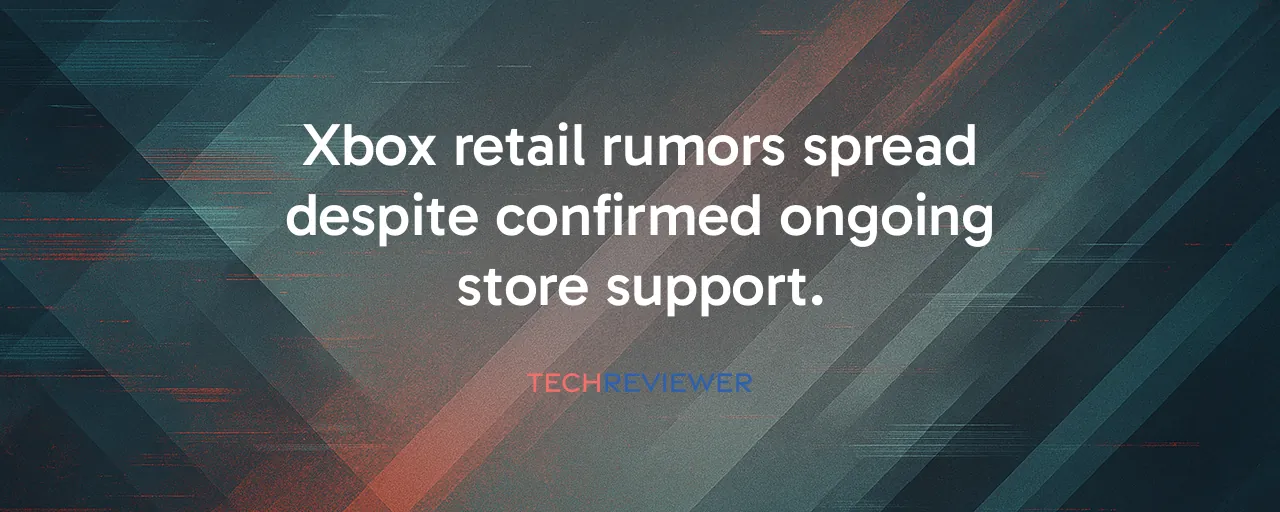A Rumor-Fueled Firestorm
Over a single weekend in October 2025, social media erupted with claims that Target and Walmart were pulling Xbox consoles from their shelves. It started with a Reddit post from a supposed Target employee in Kansas City, alleging their store was dismantling its Xbox section entirely. The post snowballed, amplified by gaming outlets and anxious fans, especially after Costco's confirmed decision to stop selling Xbox Series X and S consoles in September. Within 48 hours, the narrative painted Microsoft as a company potentially abandoning hardware. But a quick reality check, including phone calls to stores and a statement from Microsoft to Windows Central, confirmed that the claims were false and that Target and Walmart remain committed partners for Xbox consoles, accessories, and games. The episode reveals how fast misinformation can spread in gaming communities, especially when trust in a platform wavers.
Costco's Exit vs. Nintendo's Triumph
Costco's decision to drop Xbox consoles offers a stark case study in retail dynamics. Costco quietly removed Xbox Series X and S from its US and UK stores in early August 2025, citing a business decision driven by slow sales, with the move becoming publicly confirmed in September. A Costco spokesperson confirmed to journalist Destin Legarie that the retailer has no plans to restock, a move that contrasts sharply with its continued support for PlayStation 5 and Nintendo Switch products. Meanwhile, Nintendo's Switch 2 launch in June 2025 was a retail juggernaut, selling 3.5 million units in four days and generating $978 million in US consumer spending. The contrast is telling: Xbox's declining sales, down 25% year-over-year in 2025, push retailers to prioritize faster-moving products like Nintendo's latest hit, which now commands 52% of the UK console market.
Microsoft's Multiplatform Pivot
While retail rumors swirl, Microsoft's broader strategy tells a different story. The company has leaned heavily into multiplatform game releases, with titles like Forza Horizon 5, Indiana Jones and the Great Circle, and the upcoming Doom The Dark Ages launching on PlayStation 5 and PC alongside Xbox. This approach paid off in December 2024, when Microsoft became the world's largest game publisher, raking in $465 million in player spending, largely driven by Call of Duty's cross-platform success. With Xbox Game Pass boasting 34 million subscribers as of February 2024, Microsoft's focus on content and services, up 13% in revenue, overshadows its hardware struggles. However, this pivot raises questions about Xbox's hardware future, as fewer exclusives weaken the case for buying a Series X at its $600 price point, nearly $100 more than a PlayStation 5.
Why Retail Presence Matters
Retail shelf space is a battleground for visibility. When Costco pulled Xbox consoles, it didn't just limit availability; it erased Xbox from a key shopping channel for casual buyers and gift-givers. Target and Walmart's continued support is crucial, but declining sales velocity could lead to smaller Xbox sections over time. For comparison, PlayStation 5's 80.3 million units sold globally dwarf Xbox's 32.46 million, giving Sony a 2.5-to-1 edge. Retailers naturally allocate space to top performers, and Xbox's 30% sales drop in May 2025 doesn't help its case. Microsoft's counter-move includes innovations like the Xbox Ally handheld, set for release in late 2025 at $599-$999, aiming to recapture interest in a portable gaming market dominated by Nintendo.
Balancing Consumer Trust and Innovation
The rumor mill thrives on consumer uncertainty, amplified by Microsoft's rocky 2025. A 50% Game Pass price hike to $29.99 monthly sparked mass cancellations, with 53.9% of IGN's 42,000 polled users rejecting the new pricing. Fans worry about platform longevity, especially as Microsoft's multiplatform push reduces Xbox's unique appeal. However, the company's hardware commitment remains clear: a multi-year AMD partnership for next-generation consoles and the Xbox Ally project signal long-term investment. The challenge lies in convincing consumers. If Microsoft can stabilize pricing, boost exclusive content, or make the Ally a hit, it could rebuild trust. For now, Xbox navigates a tricky landscape where retail presence and consumer confidence are as critical as technological innovation.
